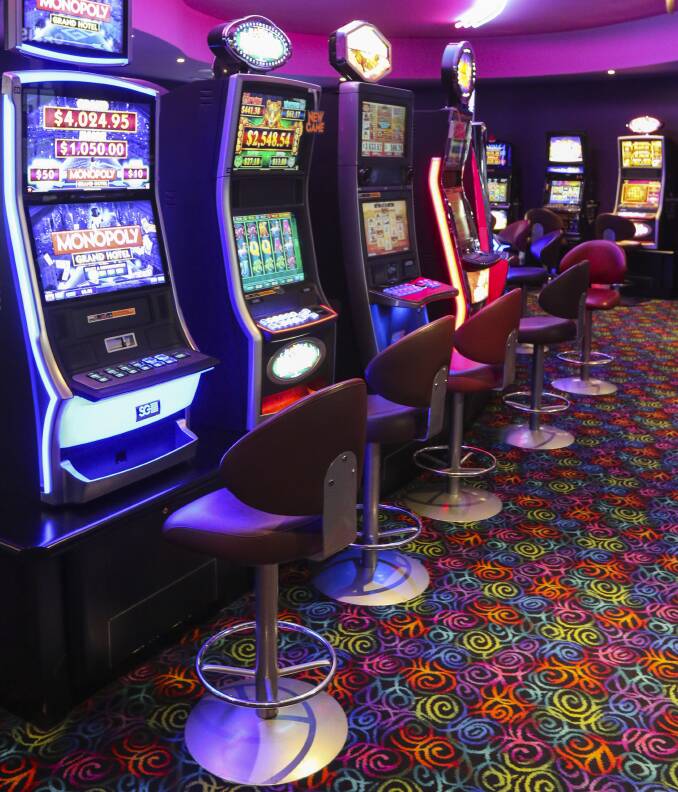
The Hunter's licensed clubs make the lion's share of their money from poker machines, but a gambling reform expert says cashless gaming will not destroy their finances.
Many of the region's registered clubs do not identify revenue from pokies in their annual reports, but those that do demonstrate how reliant the industry is on customers' gambling losses.
Cardiff RSL's latest annual report shows poker machine profits amounted to $2.6 million, or 55 per cent, of the club's $4.7 million revenue in 2021, a year heavily affected by COVID lockdowns.
South Newcastle Leagues Club made $2.5 million from poker machines in the 2021-22 financial year, which was 58 per cent of its $4.4 million total revenue.
Wallsend RSL and Community Club listed $10.8 million in gaming revenue in the year to May 2022, down from $12.7 million the year before.
The 2022 gaming income was equal to 72 per cent of the club's revenue from continuing operations.
Club Maitland City reported net poker machine revenue of $8.2 million in the 2020-21 financial year, compared with bar sales of $1.7 million and catering revenue of $1.2 million.
The club's total trading revenue was $13.5 million.
Cessnock Hospitality Group, which controls the local leagues club and three other businesses, made $5.7 million from gaming in 2021, had $26 million in assets, $6 million in liabilities and $3.4 million in the bank.
It gave $184,000 that year to local charities and sporting and community groups.
Some of the clubs talk about diversifying away from gambling revenue in their annual reports.
Monash University associate professor Charles Livingstone estimates the Perrottet government's proposed shift to cashless gaming in NSW by 2028 will trim about 20 per cent of the clubs' revenue on average.
The proposed reforms include mandatory self-imposed spending limits which cannot be changed for seven days, player identity linked to a single bank account, no credit card top-ups, machine load-up limits of $500 and self-exclusion from pokies.
The changes are designed to end money laundering by criminals and tax evaders in pubs and clubs and curb problem gambling.
Clubs NSW is fighting the reforms, arguing they will cost jobs and cut clubs' support of sporting and other community organisations.
A Productivity Commission inquiry in 2010 found problem and at-risk gamblers accounted for about 60 per cent of the total spent on gaming machines in Australia.

"My sense is the significant excess that can be attributed to people severely harmed by gambling would not entirely disappear," Dr Livingstone said of the proposed reforms.
"We're probably looking at a big hit in respect of harmful gambling of perhaps 20 per cent of revenue at the most.
"The second arm is how much money is coming from the proceeds of crime.
"It's likely to be a much more effective measure on that front because it will be very difficult for someone to continue to launder anything like significant sums of money without it becoming pretty obvious.
"If you think that perhaps 15 to 20 per cent of the revenue that goes through pubs and clubs now is from the proceeds of crime, and that's probably a reasonably conservative estimate, then I think you're looking at another 10 to 15 per cent that would be lost to them on that basis.
"So all up the maximum you would expect them to lose would be 30 per cent, but, more realistically, particularly in the initial years, it will be more like the 15 to 25 per cent range."
Dr Livingstone, the head of the Gambling and Social Determinants Unit at Monash's School of Public Health and Preventive Medicine, said the state's largest clubs were making 80 to 90 per cent of their revenue from poker machines and had not diversified enough.
"They've known this sort of intervention was coming at least since 2010 and they should have been persuaded, encouraged or led to where they started diversifying," he said.
"They're riding a tiger, and they don't know how to get off.
"If they get their reliance on pokie money down, it's not going to be such a big deal.
"If they lose 20 per cent of their revenue, the world is not going to end.
"Most of their employment is not in gaming rooms; it's in liquor and food, and that's probably not going to be affected that much. The pokies cross-subsidise that, so they may have to increase their prices a bit.
"If they can't manage that transition over five years, they shouldn't be in the business."
The Newcastle Herald has reported this week that Hunter gamblers lost $251 million in the six months to June 2022 on poker machines and Newcastle is blowing $1200 per adult a year in poker machine losses.
WHAT DO YOU THINK? Join the discussion in the comment section below.
Find out how to register or become a subscriber here.
To see more stories and read today's paper download the Newcastle Herald news app here.







